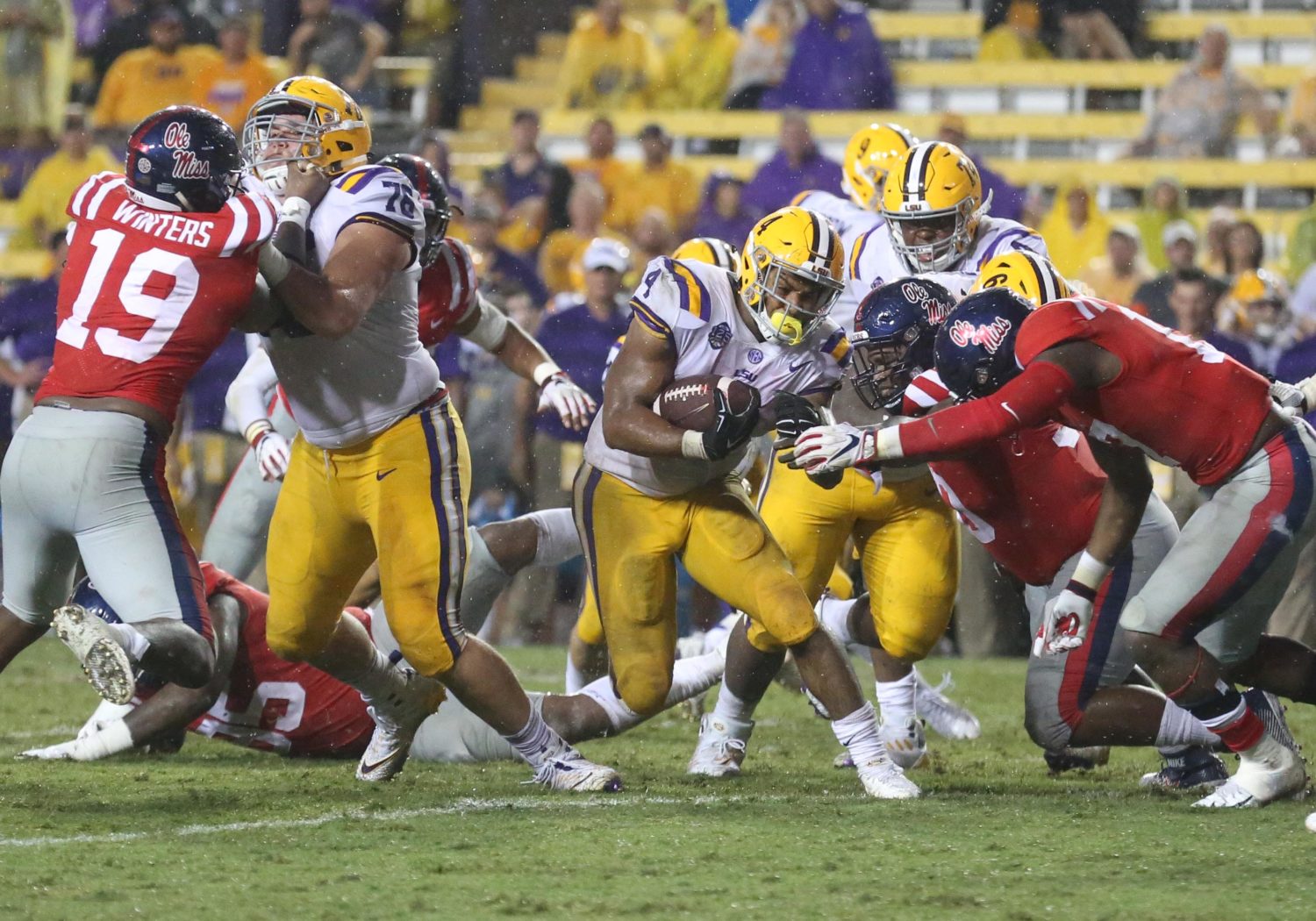
Ole Miss’ defense has improved. How much? We’ll find out against No. 1 LSU
By Brad Logan
Published:
The odds are long, but Ole Miss finds itself in a position to win 6 games and get to the postseason heading into the final 2 games of the season.
Standing in its way are No. 1 LSU and rival Mississippi State.
The Rebels (4-6, 2-4 SEC) can lament losses that got away, but they still have the opportunity to look ahead to a possible bowl game.
The improvement of the 2019 team can be traced largely to the defense. Following the dismissal of defensive coordinator Wesley McGriff, Ole Miss coach Matt Luke hired one of the best coordinators available on paper in Mike MacIntyre.
It proved to be a wise move, as the defense has improved dramatically. While this weekend against the Tigers might not support that success, we have seen games against Alabama and Auburn with narrower margins than in years past.
The trend on improvement likely will continue, following the lopsided loss to the Bulldogs last season in the Egg Bowl 35-3.
The defensive numbers bear out the success
Let’s be honest, last season the Rebels had one of the worst defenses in the country. To the credit of MacIntyre and his staff, the numbers have shown marked improvement.
The most glaring stat is total defense. Ole Miss is No. 71, where it has hovered all season. Last season it finished No. 121 out of 130 teams.
Last season, Ole Miss gave up 483.4 yards per game. This year? It’s fallen to 396.9 yards per game.
Yards matter, but points determine who gets fired and who gets extended.
Ole Miss is allowing just 23.9 points per game this season, almost 2 TDs less than last year’s average 36.2.
It also is getting opposing offenses off the field with more regularity on 3rd down, stopping teams 40.48% of the time vs. 38.93% last season.
A tall task awaits against visiting LSU
Former Ole Miss coach and current Tigers coach Ed Orgeron has a potent offense, ranked No. 4 nationally at 46.7 points per game, thanks in part to the emergence of quarterback Joe Burrow. The most important person in the room could be the addition of passing game coordinator Joe Brady, who has previous stints at Penn State and the New Orleans Saints.
Coming into the Ole Miss game, the Tigers are No. 2 in the country in passing offense, averaging 379.3 yards per game.
Just how big of a difference has Brady made? Last season, LSU was just 67th in the country in the same category, averaging 228.5 yards per game. Burrow broke LSU’s single-season TD record last month and is adding to it. He is 2nd in the country with 33.
Though the Tigers have embraced the pass, they’ve haven’t abandoned the run game. LSU averages 159.1 yards per game and is led by tailback Clyde Edwards-Helaire with 808 yards on the season, 11 touchdowns and a 5.8 yard per carry average.
The bad news for Ole Miss, the LSU passing attack will be going against the 117th-ranked passing defense in the country, an area the Rebels have struggled with all season, giving up 274.2 yards per game.
Like anytime you face a superior opponent, the Rebels are going to have to have some help in the way of turnovers.
The rivalry has been a wild one
Ole Miss and LSU have played since 1894 and will play for the 107th time Saturday. The only school it has played more is Mississippi State. LSU has a commanding lead in the series 62-40-4 in one that has seen some dramatic finishes.
Many remember the night Orgeron took his Ole Miss team into Tiger Stadium in 2006, taking the Tigers to overtime and losing to the JaMarcus Russell-led Tigers.
A memorable game for Ole Miss took place in 1996 when Tommy Tuberville and the unranked Rebs beat the No. 8 Tigers 36-21 just 1 week after LSU beat the No. 1 Florida.
The most memorable moment between the two happened in 1959 when LSU’s Billy Cannon returned a punt for 89-yards and the only score of the game to give the Tigers a 7-3 win. That helped Cannon capture the Heisman Trophy. Ole Miss ended the season by beating the Tigers 21-0 in the Sugar Bowl and claiming a share of the national championship.







